In Frank Capra’s critically acclaimed film It Happened One Night released in 1932, Clark Gable was labeled as “The King of Hollywood,” starring alongside Claudette Colbert, portrayed a down-on-his-luck reporter Peter Warne in desperate need of a story.
His desperate and stubborn search was not in vain because it served in the making of one of the best movies ever delivered to the big screen.
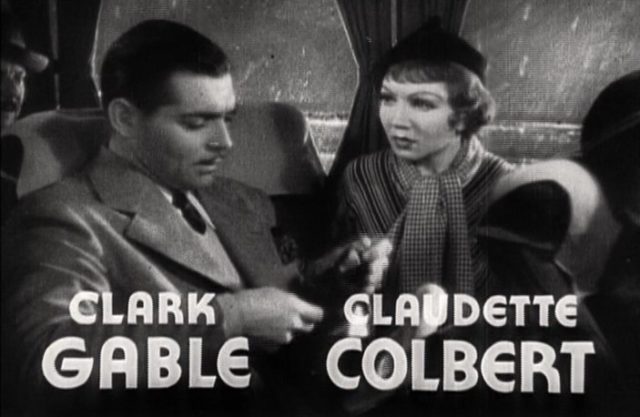
That year, Gable’s visceral performance helped the movie win the Best Picture Award, earning the Oscar for best lead performance. The movie was the first ever to win the big five at the Oscars, for Best Picture, Best Director, Best Actress, Best Actor, and Best Writing.
No other film managed to achieve that 41 years later, and it has only been done three times in the history of the Oscars. The other two films, lucky enough to accomplish the same, are One Flew Over the Cuckoo’s Nest (1975), and The Silence of the Lambs (1991).

In 1940, on the other side of California, Chuck Jones, Friz Freleng and Bob Clampett, the animation directors at Warner Bros Studio, inspired by Clark’s performance in the movie, gave birth to one of the most iconic animated characters of all time.
A quirky, carrot-eating, unnamed rabbit made his debut in a cartoon called A Wild Hare, in which, while nonchalantly chewing on a carrot with a gun on his face, for the first time delivered the line “Eh, what’s up Doc?”. Later in his next short Elmer’s Pet Rabbit, the rabbit would be named “Bugs Bunny, ” and the line repeated throughout all of the subsequent films will become his trademark catchphrase.
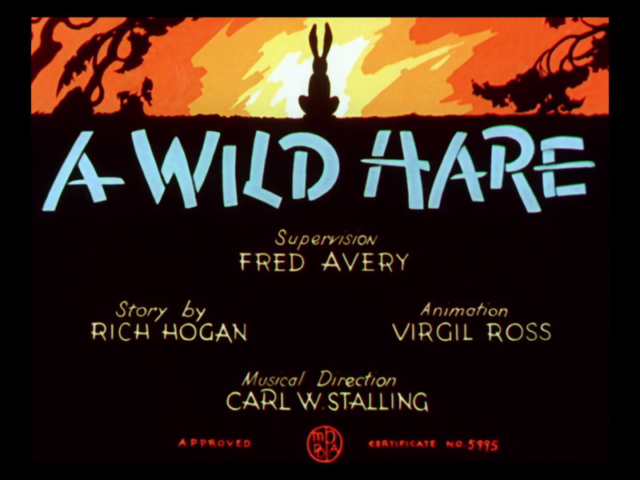
Although many of the mannerisms which Bugs Bunny displayed on screen were adapted from Groucho Marx, the directors confessed that the real inspiration and the idea for the rabbit’s nonchalant carrot-chewing character came from a scene in It Happened One Night where Peter Warne, leaned on a fence, is eating carrots rapidly with his mouth full, explaining the rules of hitchhiking to Claudette Colbert’s character.
Inspired and uplifted, with a precise idea for their rabbit’s character, they’ve made a decision to acquire Melvin Jerome “Mel” Blanc, an employee at Warner Bros and a previously proven voice actor, actor, radio comedian, and a recording artist, to do the voice for Bugs Bunny.
He was an established television comedian, and a regular on the NBC Red Network show The Jack Benny Program, where he performed various roles and had already done Porky Pig’s voice in Porky’s Duck Hunt, and the voice of Daffy Duck in an outstanding manner. So, they believed that he was the perfect candidate to bring their new animation to life.
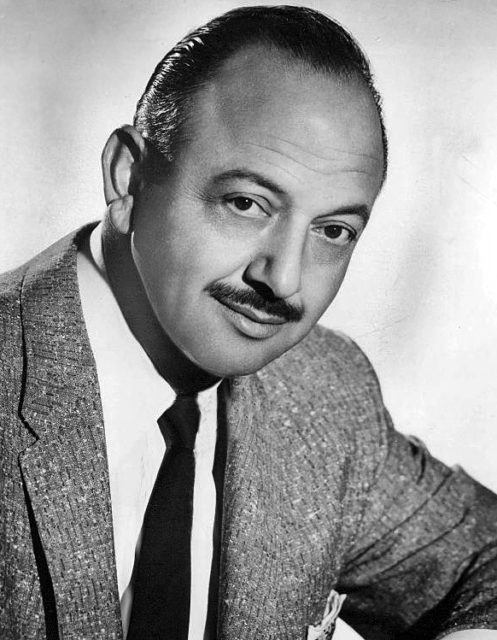
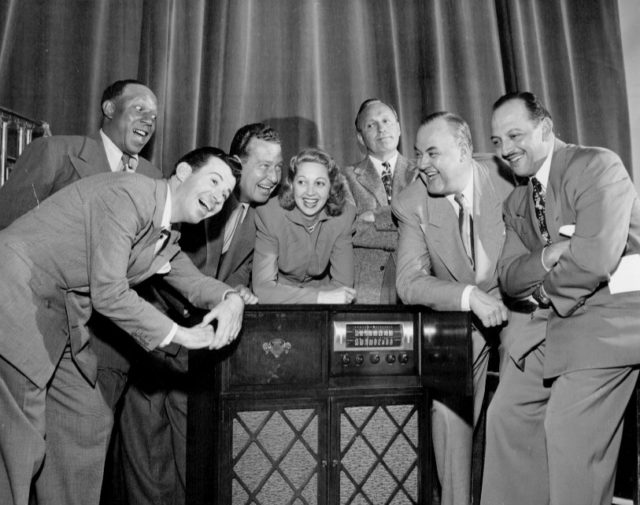
As time showed, their decision was highly justified. Mel, despite loathing carrots, in order to voice over Bugs’s carrot chewing habit and deliver him to the best of his abilities, munched on an actual carrot when he voiced a scene. However, he hated carrots so much, that he requested a spittoon by him so he could spit the carrot out between takes.
And now, while many of us associate rabbits with Bugs’ nibbling a carrot, that notion is quite contrary to the truth and as imaginary as the idea of a talking rabbit. So due to Clark Gable immaculate and mesmerizing acting performance and Mel’s relentless effort to bring a character to life, there is a popular myth and a global need to learn more about these hay eating animals.
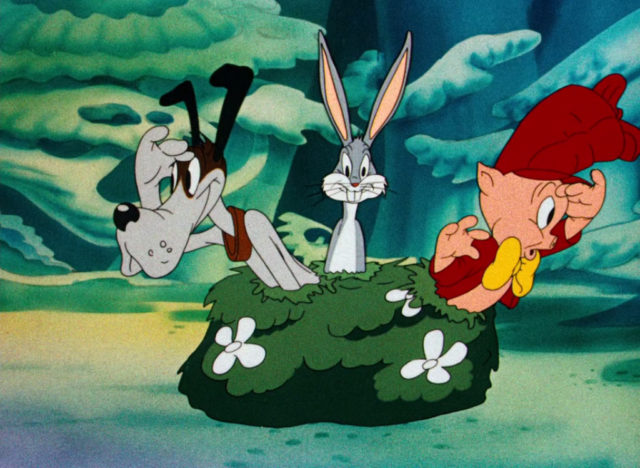
Blanc instantly became a true legend and a prominent vocal artist for Warner Bros, voicing almost all of the “Looney Tunes” characters, righteously earning the nickname “The Man of a Thousand Voices”. He is the voice of Bugs Bunny, Porky Pig, Daffy Duck, Tweety Bird, Sylvester the Cat, Yosemite Sam, the Tasmanian Devil, Marvin the Martian, Pepé Le Pew, Speedy Gonzales, Wile E. Coyote, Road Runner, and many others. Later, he lend his voice for Hanna-Barbera’s Barney Rubble of The Flintstones and Cosmo Spacely of The Jetsons.
On January 24th, 1961, Blanc had a nearly-fatal car accident on Sunset Boulevard which put him in a coma for two weeks. He was diagnosed with triple skull bone displacements and fractures on both of his legs and pelvis. After many doctors’ attempts to bring him out of the deep unconsciousness, one of his neurologists tried a different approach and asked Mel, “How are you feeling today, Bugs Bunny?” After a short period of time, in a low voice, he replied, “Eh… just fine, Doc. What’s up?” The doctor then asked if Tweety was in there somewhere, to which he replied: “I tot I taw a puddy tat.”
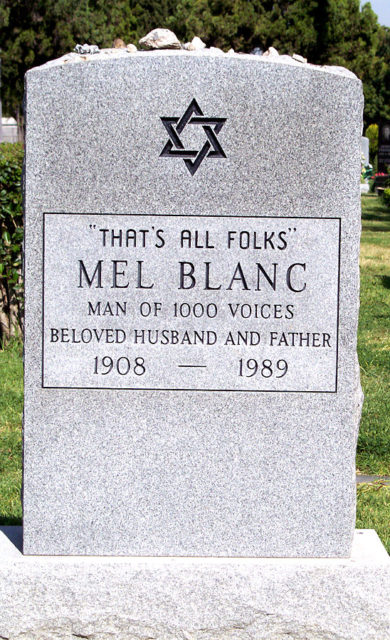
Mel Blanc recovered shortly after and continued to do what he did best, acting voices even when he was at home, recovering. His health worsen in 1989 when he experienced a severe cough while shooting a commercial. The doctors diagnosed him with a coronary artery disease. He passed away only two months later at the age of 81.
What you do in life is what defines you, yet sometimes the way you do things can inspire greatness elsewhere. Although now long gone, Mel, the very first voice actor to be given credits on the screen, was cheerful through the thick and thin in life to the very end. Inspired by a quirky reporter, he left the world a legacy and an epitaph to be remembered by.
